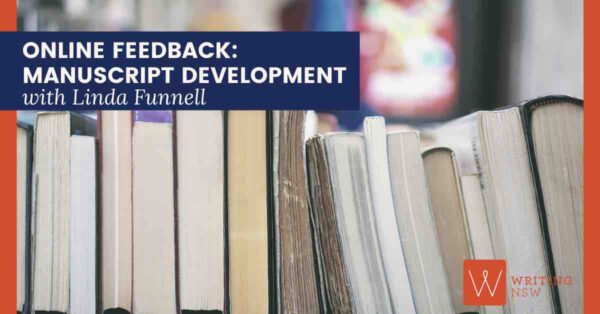
What do you look when reading the opening pages of a manuscript?
Readers need to be engaged by a story from the very first page, but what does that mean? Voice is very important, and so is the opening scenario. Another key element is a hook that will keep readers turning the pages. For different genres there might be different kinds of hooks – for a crime novel you need a crime, or at least the suggestion of one, very early, but for literary fiction or memoir it might be a compelling character, or a moment of crisis that the reader wants to know more about.
There are certainly things you don’t want to find those opening pages, such as long introductions to a character or place, or chunks of backstory that would be better threaded into the story later on or omitted altogether. It’s best to plunge the reader into the action and deal with those details as they arise. It’s the old iceberg principle – the writer needs to know the entire iceberg, ie all the backstory and all the details of their characters’ lives, but the reader only needs to know the ten per cent that is most relevant to this story.
The other thing to keep in mind about the opening pages is that they are setting up reader expectations. This is Chekhov’s famous injunction: ‘One must never place a loaded rifle on the stage if it isn’t going to go off. It’s wrong to make promises you don’t mean to keep.’
In the same vein, if you have someone with, say, asthma, or sleeping with a knife under their pillow, make sure this isn’t forgotten as your story unfolds. That asthmatic isn’t necessarily going to be able to run a marathon, and the person with the knife under the pillow isn’t necessarily going to trust others easily. Make those details work to flesh out your central theme.
In your online feedback course, participants will also submit an industry-standard synopsis. Why is this so important?
When you’re at the point that you’re ready to start submitting your work to agents and publishers, it’s important to check the submission guidelines for each of them – they can vary quite a bit, but often they will ask for a synopsis of your work.
I don’t know any writers who enjoy writing a synopsis – ‘I wouldn’t have written 80,000 words if I could tell this story in a single A4 page!’ is a common response – but writing a synopsis can be a useful exercise while you’re in the middle of writing a book as well as a useful selling tool when you’ve finished.
A synopsis sets out the architecture of your story. What is the most important storyline? What is the beginning, middle and end? If you don’t yet know, what do you think you’d like them to be? Writers sometimes categorise themselves as ‘planners’, plotting out exactly where they want their story to go, sometimes even chapter by chapter, before they start writing – or ‘pantsers’, who just let the ideas flow and see where they lead. Most writers are a bit of both – starting with a bit of a plan and adjusting it as the story unfolds.
The exercise of writing a synopsis can help you focus on where you want to go – or where you think you’d like to go – in your ms.
Once a first draft is completed, the editing and revision process can be a lengthy and draining process. How can writers stay motivated and keep on track?
In my experience many writers find the process of revision much more enjoyable than getting down a first draft! Once you have that first draft you have something to work with, you’re not facing a blank page and pulling ideas out of the air. Once you have a bunch of ideas on the page in front of you, you’re ready to shape, expand and trim them to achieve the effects you want.
And don’t be daunted if some of the ideas you have about that first draft seem radical – cutting whole sections, rewriting others. This is not unusual – as you engage with the work, you’ll work out what you want to strengthen, what plot holes need to be filled, what could perhaps come out. It can be quite an exciting process.
But yes, it can also take longer than you anticipated. This too is not unusual.
When you hit a wall, things like simply going for a walk can help refresh your view of things. Putting the ms away for a period can help too, so that you come back to it with fresh eyes to see the trees amid the forest you’ve created.
Perhaps the most important thing is to keep hold of that initial spark that got you writing this story in the first place. Keep that spark in special place and don’t let it go out.
Join Linda’s course Online Feedback: Manuscript Development, 12 September to 25 November 2022, online. Enrol here >>

If you want to be the first to read great advice from our incredible tutors, subscribe to our weekly e-newsletter Newsbite.
More from Writing NSW
Check out our full range of in-person writing courses in Sydney, our online writing courses and our feedback programs to see how we can help you on your writing journey. Find out about our grants and prizes, as well as writing groups across NSW, and sign up to our weekly newsletter for writing events, opportunities and giveaways.
